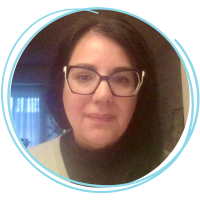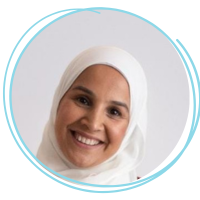Supporting Safety: Lessons Learned from a Culturally-Informed Peer Support Program for Newcomer Arabic-Speaking Communities
This Resource Spotlight was presented on December 12, 2024.
In this Resource Spotlight, presenters share highlights from the Supporting Her Safety program, an innovative community education program developed and delivered by the Muslim Resource Centre for Social Support and Integration (MRCSSI) in collaboration with newcomer Arabic speaking women. This multi-week program is designed to raise awareness of the various forms, tactics, and impacts of abuse, and to equip participants with the skills to recognize and respond to abuse with compassionate care. Central to the program is the 5 Alifs, a culturally-informed guide to responding to disclosures and providing peer support. Presenters share preliminary findings, impacts, and key insights on how the program can be adapted to support newcomer communities across Canada.
Recording
Learning Objectives
Following this Resource Spotlight, participants will:
- Gain valuable understanding of the culturally integrative Supporting Her Safety curriculum and program impacts.
- Learn key insights and guidance on developing culturally relevant public education curricula and strategies to address IPV and GBV in newcomer communities through collaborative community engagement.
Speakers

Yasmin Hussain works in Community Development with the London InterCommunity Health Centre (LIHC) where she works with/in communities to tackle realities of systemic marginalization and address barriers to health and well-being. Previously Yasmin was the Manager for Public Education and Community Programs at the Muslim Resource Centre for Social Support and Integration (MRCSSI) where she developed and facilitated multiple community education strategies, initiatives and programs addressing Gender-Based Violence. Yasmin has rich experience co-creating participatory action strategies together with women and youth as means of mobilizing engagement, awareness and leadership GBV. She is passionate about creating safer communities through peer-based strategies of awareness and support.

Taghreed Al-Soumairy holds a Ph.D. in Media and Communication and bring over 15 years of experience in research, community outreach, and program development, focusing on gender-based violence (GBV) and media memory studies. In her current role as Coordinator for Public Education and Community Programs at the MRCSSI, she has played a key role in developing and facilitating a curriculum to raise awareness about intimate partner violence (IPV) and “support her safety.” Her research experience since 2005, focuses particularly in the areas of GBV, migration, and the intersection of violence and collective memory. She has led research teams at the DAL Research Centre (Lebanese University) and coordinated research across 11 Arab countries for the Arab Thought Foundation (Beirut). Additionally, she has contributed to influential reports, including the UNFPA’s “Media Coverage of Gender-Based Violence in Lebanon” (2012), the “For a Balanced Image of Women in Media” conducted in collaboration with ActionAid in the Arab region (2015),”Syrian Refugee Women in Lebanon: Challenges of Motherhood” (2019). She is currently working on a book under review that highlights how gender shapes collective memory, particularly in the context of social media, with part of this project exploring how women's narratives are represented and remembered in digital spaces. She has also recently published a paper titled “Women as References of Collective Memory in War Zones” (2024), analyzing the role of women in constructing collective memory in conflict areas and highlighting how gendered experiences of conflict and violence shape societal memory. From 2005 to 2009, she worked as a freelance journalist for several newspapers in Lebanon, gaining invaluable experience in media reporting and storytelling.
All our resources are open-access and can be shared (e.g., linked, downloaded and sent) or cited with credit. If you would like to adapt and/or edit, translate, or embed/upload our content on your website/training materials (e.g., Webinar video), please email us at gbvln@uwo.ca so that we can work together to do so.






